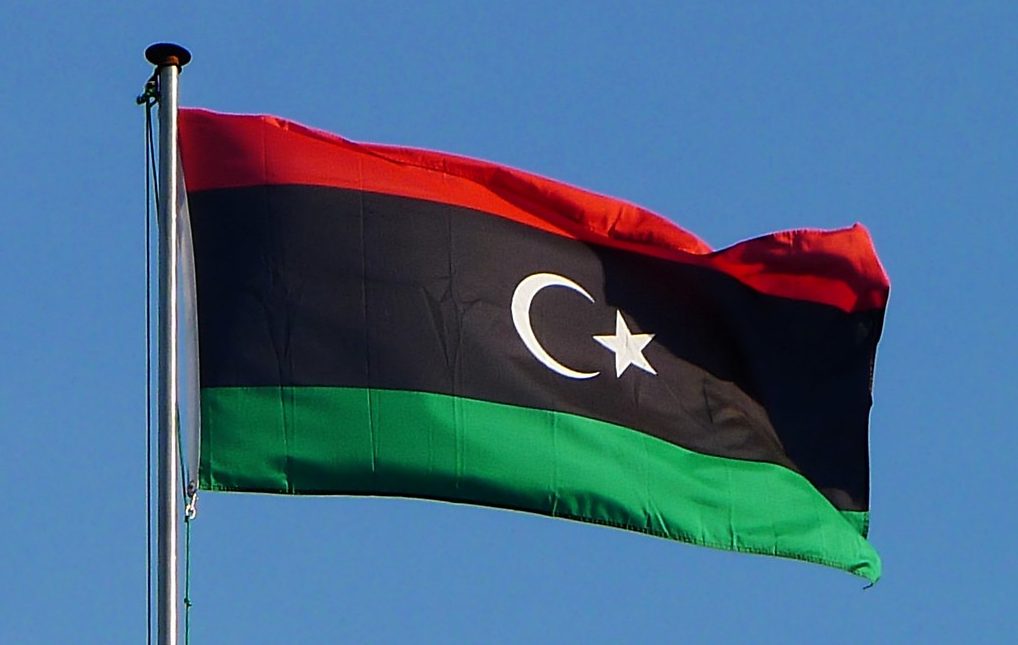Libya has been mired in chaos since the overthrow of its former leader during the 2011 Arab Spring protests.
Qatar’s ambassador to Libya Khalid Al Dosari renewed the Gulf state’s support to the country’s stability, Anadolu Agency (AA) reported on Monday.
This came during a meeting between Al Dosari and Deputy Prime Minister of Libya’s Government of National Unity (GNU), Ramadan Abu Janah in Tripoli. Al Dosari was appointed as the country’s first ambassador to Libya for the first time since 2014.
The Gulf state had shut its embassy in Tripoli at the time.
The news agency reported that the Qatari envoy praised the GNU’s international and regional efforts to achieve stability in Libya. Al Dosari also expressed Qatar’s keenness on developing Doha and Tripoli’s bilateral ties and activating agreements signed between the two countries.
Speaking to Abu Janah, who is also the acting health minister, Al Dosari said Qatar seeks to provide Libya with Covid-19 vaccines to support its response to the pandemic.
Qatar has long supported the UN-backed GNU, which came to power last year following a long period of instability following the overthrow of former dictator Muammar Gaddafi.
Gaddafi was one of the region’s leaders who faced widespread protests during the 2011 Arab Spring.
In 2020, the Gulf state and the Libyan government signed a security agreement aimed at strengthening cooperation against terrorism and organised crime. Warlord General Khalifah Haftar, who led a military campaign to oust the internationally recognised government, condemned the agreement.
Haftar was later forced out of northwestern Libya following a military intervention led by Turkey in 2020. The UN High Commissioner for Refugees estimates that the conflict in Libya internally displaced more than 200,000 people. Approximately 1.3 million people were also left in need of humanitarian assistance.
Political divide
The interim Libyan government, headed by Prime Minister Abdel Hamid Dbeibeh, was scheduled to remain in power until the December presidential elections in 2021. Days ahead of the elections, the date was changed to 24 January this year by the High National Election Committee (HNEC).
The new deadline passed and Prime Minister Fathi Bashagha came to power in February after he was appointed by the eastern-based House of Representatives. This has led to a political divide between two rival administrations, with Dbeibeh refusing to step down.
Tensions in Libya later increased, with Bashagha attempting to take control over Tripoli on 17 May. Bashagha was forced out of the capital city within hours following violent clashes.
Qatar had expressed its concern over the situation and called on all sides “to exercise restraint” while stressing the importance of dialogue “to overcome differences.”
“The Ministry of Foreign Affairs renews Qatar’s full support for the Libyan political track, the relevant Security Council resolutions, and all peaceful solutions that preserve Libya’s unity, stability and sovereignty, and achieve the aspirations of its brotherly people for development and prosperity,” said the Gulf state.
Last week, Rosemary DiCarlo, UN Under-Secretary-General for Political and Peacebuilding Affairs, expressed her concern over the political deadlock in Libya.
“While fighting has ceased, the situation remains tense. Tripoli-based armed groups supporting either Mr. Dbeibah or Mr. Bashagha remain in a state of high alert,” said DiCarlo.







